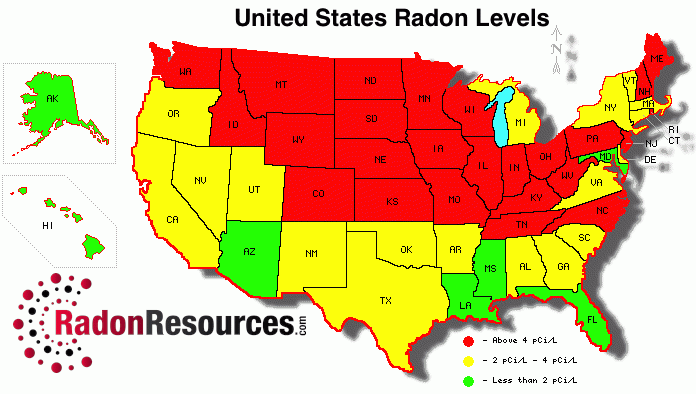The Ultimate Guide To How Does Veterns Vocational Rehab
The therapists likewise serve as resources if a job does not exercise by examining what happened and counseling the individual on how to enhance efficiency or modification practices that were not viewed positively in the office. Candidates may not be satisfied with the speed of progress toward their work goal through VR or they might not believe their dreams or talents and abilities are being taken seriously.
Candidates may find that VR therapists tend to suggest low-level and low-paying tasks typically recommended for VR applicants, such as food service and janitorial work. Applicants may likewise be turned away by VR therapists since the therapists choose the applicant's special needs is too extreme for the person to take advantage of VR services.

To resolve these issues in the VR system, the United States Additional reading Congress passed the Ticket To Work Act. Under this Act, persons with mental or handicaps will receive a ticket worth a particular quantity of money. They may take this ticket to any private or public entity that offers task training and positioning, including state VR programs (what does vocational rehab mean).

States are on a staggered schedule to begin implementing the program; persons in the very first states started getting tickets in 2001. All states will be setting up the Ticket to Work Act by 2004. People with mental or handicaps will get the evaluations, therapy, training, positioning, lodgings and long-term assistances required to allow them to take part in the gainful work of their choice.
A Biased View of What Is The Address To Division Of Vocational Rehab
More than 70% of people with specials needs are out of work; for individuals with mental illness, that percentage ranges from 70-90%. Fischler, Gary and Nan Booth. Vocational Effect of Psychiatric Disorders: A Guide for Rehabilitation Professionals. Austin: PRO-ED, Incorporated, 1999. Cook, Judith A. "Research-Based Concepts of Vocational Rehab for Psychiatric Impairment." International Association of Psychosocial Rehab Solutions newsletter Connection issue 4 (September 1999).
Harding, Courtney. "Some Things We have actually Learned about Vocational Rehab of the Seriously and Constantly Mentally Ill." Western Interstate Commission for College newsletter West Link: Western Health Advancement in the United States vol. 18, no 2( 1997 ). Also offered at . Lehman, Anthony F. "Vocational Rehab in Schizophrenia." In Schizophrenia Bulletin 21, no.
MacDonald-Wilson, K. "Unique Concerns in Examining Work Function Amongst Individuals with Psychiatric Disabilities." Journal of Occupational Rehabilitation 11, no. 3 (2001 ): 217-232. Maronne, J., C. Gandolfo, M. Gold, and D. Hoff. "If You Think Work Is Bad for Individuals with Mental Illness, Then Try Hardship, Joblessness, and Social Isolation." Psychiatric Rehabilitation Journal 23, no.
Association for Persons in Supported Work (APSE) offers an across the country supported employment network through its national program and state chapters. APSE works to increase supported employment chances, educate consumers concerning their rights in supported work activities and train experts to develop quality supported work services. APSE, 1627 Monolith Opportunity, Richmond, VA 23220.
Not known Incorrect Statements About What Does Vocational Rehab Offer
Fax: (804) 278-9377. . The Office of Special Education and Rehabilitative Solutions' Rehabilitation Services Administration (RSA) web site describes the programs used, federal law and guidelines governing VR programs, and includes a link to all state VR programs and agencies. . State Rehabilitation Councils.
Individuals with specials needs or their relative need to make up 60% or more of a Council's membership. The Pennsylvania Rehabilitation Council has a web website with links to different state rehab councils at . The Pennsylvania Rehabilitation Council can be reached at: Rehab Council Assistance Task, 1902 Market Street, Camp Hill, PA 17011.
Montana values people with impairments in our workforce and our communities. Montana Vocational Rehab and Blind Services promotes opportunities for Montanans with impairments to have satisfying professions and attain optimal personal potential. We value informed choice; our staff guide, and individuals we serve choose. We presume all people with disabilities, including those with the most significant disabilities, can work in competitive incorporated settings with advancement opportunities.
Our services promote the civil liberties of each individual. We respect and worth variety. We value our ethical structures of autonomy, beneficence, fidelity, justice, non-maleficence, and veracity. We promote healthy connection, independent living, and community combination. Teaming up with partners makes us more powerful and more effective. We continuously innovate and provide state of the art services People with specials needs seeking work and their employers comprise our 2 main consumers (how to qualify for vocational rehab).
Top Guidelines Of What Is A Vocational Rehab Teacher
Vocational Rehabilitation and Blind Services integrates the general and the blind professional rehabilitation programs in a single unit. Montana state law enables the combined method, and it likewise requires different services for blind and aesthetically impaired clients. Follow the link to Blind and Low Vision Services on this page to learn more about that part of our program.
The Performing Administrator of Vocational Rehabilitation and Blind Services along with Disability Employment and Transitions is Chanda Hermanson-Dudley. Chanda might be reached through the contact links listed below. Our Vocational Rehabilitation Counselors and Instructors must hold a master's degree and the ability to sit for accreditation in order to be gotten approved for their jobs.
All engage constant improvement and personal advancement to hone their skills to an eager cutting edge. Our Headquarters administrative staff lies in Helena. 111 North Last Chance Gulch, Suite 4CPO Box 4210Helena, MT 59604-42101 (877) 296-1197 (toll-free consumer line)( 406) 444-2590 (voice/TTY)( 406) 444-3632 (fax) Email: vrinfo@mt.gov!.?.! If you want to contact us, please email us or contact your regional workplace. VR consumers have the skills, drive, commitment and reliability you desire. We can help you tap into this talent swimming pool through: assistance to meet your needs, consisting of site check outs, discussions, training, trips, and neighborhood resource referrals; to build a strong, diverse workforce with job task analysis, pre-screening, candidate recommendation and interview scheduling; using classroom guideline and hands-on tasks help our consumers find out the foundational soft abilities and industry-specific task skills needed to work for you; services so that you can retain valuable workers who require aid due to an impairment that might be threatening their employment.
What is Vocational Rehabilitation? New Hampshire Vocational Rehabilitation (NHVR) is a division of the Department of Education that assists individuals with specials http://lanewrdo889.image-perth.org/some-known-questions-about-how-does-vocational-rehab-pay-for-me-to-work needs assist themselves to get a task, keep the job, and establish a life time profession. NHVR has seven local workplaces throughout the state developed to assist persons who have physical, psychological, psychological and discovering specials needs.
6 Simple Techniques For How Long Does Vocational Rehab Have To Start An Intake
Who is Alcohol Rehab Facility Qualified for Provider? You will be eligible if: You have a disability, andYour special needs develops significant problems in preparing for a task, getting a task, or keeping a task, andYou require VR services to end up being employed or to stay used. What does Order of Selection Mean? Order of selection is a procedure for prioritizing qualified people that a vocational rehabilitation (VR) firm plans to serve based on offered resources and capability.
The Rehabilitation Act, as changed by the Labor force Innovation and Chance Act (WIOA), requires that people with the most significant disabilities be served initially. Currently, there is no order of choice for VR services in New Hampshire. How Do I Begin? If you have an interest in requesting VR services, call your regional VR workplace, tell them you have a disability and need help getting a job.
